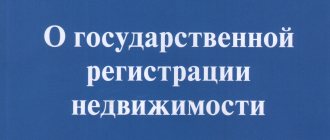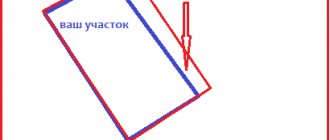How much does it cost to file a lawsuit?
When submitting an application (claim) to court in order to protect your violated rights, you need to pay a state fee. This is a fee charged for the fact of applying to the government for help, which is established by law. It is important to note that there are exceptions - not all claims require state fees to be paid to the court. The Tax Code provides benefits for filing claims—exemption from fees for some individuals. And in some cases, taking into account the circumstances, the plaintiff may receive a deferment in payment of the duty or be able to pay it in installments. How much does it cost to file a lawsuit? How much do I need to pay before going to court? The amount of the state duty, sometimes, depends directly on the amount of claim specified in the applicant’s request. The nature and volume of claims determine the cost of going to court. Article 333 19 of the Tax Code of the Russian Federation is devoted to calculating the amount of the duty. For claims filed in connection with violation of property. rights that can be assessed, the state duty is as follows:
- 400 rub. minimum or 4% of the cost of the claim if it is less than 20,000 rubles;
- 800 rub. minimum + 3% of the amount claimed if it is from 21,001 to 100,000 rubles;
- 3,200 rub. minimum + 2% of the amount if it is from 100,001 to 200,000 rubles;
- 5,200 rub. minimum + 1% of the amount if it is from 200,001 to 1,000,000 rubles;
- 13,200 rub. minimum + 0.5% of the amount, if this amount is more than 1,000,000 rubles, but not more than the maximum amount of 60,000 rubles.
In Art. 333 19 of the Tax Code of the Russian Federation also prescribes fixed amounts of duties. So, for a claim for a court order in a property case, you need to pay 50% of the property fee. claim For non-evaluable property and non-property claims of individuals. individuals pay 300 rubles. To dissolve a marriage, you must pay 600 rubles. duties. Challenge the regulatory act of a physical person. a person can for 300 rubles. The same fee must be paid for the opportunity to recognize non-normative acts or decisions or acts of the state. illegal bodies. Filing a claim in a special proceeding case will also cost 300 rubles. You can file an appeal or cassation for 50% of the fee paid for a non-property claim. An application for the issuance of a writ of execution costs 250 rubles. Alimony can be recovered by paying 150 rubles. or the widow's amount is greater if alimony is required for the plaintiff and the child. So, there are fixed amounts of state duties and there are those that must be calculated based on the amount of the claim against the defendant. Currently, there are many calculators and electronic services that allow you to calculate the amount of duty without getting up from your computer. You can also pay the fee quickly - directly on the website of the judicial authority.
Features of tax accounting for state duties
In tax accounting for state duties, it is most important for an accountant to determine the moment of recognition as an expense. According to the National Tax Code, these are other expenses of the organization that must be reflected at the time of accrual (Tax Code of the Russian Federation, Article 264-1-1), however, the legislator does not explain how to determine a specific accounting date. Obviously, at the time of recognition the following conditions must be met:
- the state duty complies with legal requirements;
- the state duty is economically justified;
- the state duty has been paid, including through accountable persons, and there are documents confirming this fact.
How to take into account the costs of paying the state duty for registering a legal entity ?
The accrual date depends on the specific situation and type of state duty. For example, registration of property rights and some other registration actions (Tax Code of the Russian Federation, Article 333.18-1-5.2) are impossible without paying a state fee. At the same time, a legal entity can refuse it even before the start of registration and get its money back (Tax Code of the Russian Federation, Art. 333.40-1-4). The date of inclusion in expenses will be the day of receipt of documents for registration.
The supporting documents here will be a receipt (payment order, other document confirming payment) and a receipt from the registering authority on acceptance of documents.
Is it possible to reflect in the accounting records the founder's expenses for paying the state duty for registering a legal entity (LLC) ?
The state fee for a license is reflected in the NU at the time of accrual (document No. ED-4-3/22400 dated 12/28/11, Federal Tax Service, Article 272-7-1, 264-1-1 of the Tax Code of the Russian Federation). The context of the letter from the Federal Tax Service allows us to consider the moment of accrual to be identical to the moment of payment of the state duty.
When paying court fees, you need to keep in mind the following: Art. 272-7-1 of the Tax Code of the Russian Federation talks about the date of accrual of the state duty, and Art. 333.18-1-1 clearly states that the fee must be paid before going to court. Since the legislation does not contain a specific date, and in accounting the payment must be reflected precisely on a specific date, expenses for tax payments are recognized on the day of payment.
If, subsequently, by a court decision, the defendant is obliged to pay the state fee, the plaintiff will reflect it as other income, and the defendant as other expenses.
There is also an opinion that until the court decision, only the payment of the state duty should be reflected and not reflected in expenses until the end of the trial. It is obvious that any chosen option for accounting for state duties must be justified by references to regulatory documents and reflected in the LNA.
How is the payment of state duty for employee certification ?
The duty associated with the acquisition of intangible assets and fixed assets is taken into account in two ways (according to the text of letter No. 03-03-06/1/295 dated 8/06/12 of the Ministry of Finance and Article 264-1-1.40 of the Tax Code of the Russian Federation):
- if entered before the start of operation of the asset and registration, it is included in the initial cost;
- if during the period when the initial cost has already been formed - in other expenses.
When are deferments, installments and additional payments possible when transferring state fees?
The Civil Procedure Code of the Russian Federation provides for deferment and installment payment of state duties. Deferment means moving the payment date to a later date, and installment means paying in installments in stages. According to Article 333.41 of the Tax Code of the Russian Federation, you can pay state duty in installments no longer than for a year; the maximum deferment period for payment is also a year. If the court gives the plaintiff the right to defer or installment payment, then interest on the amount of the fee will not be charged. So when can a citizen count on a deferment or installment plan when transferring duties? The court decides this by examining the case materials in detail and studying the financial situation of the plaintiff. To obtain an installment plan or deferment, you need to file a petition for this with the court. It can be stated either directly in the statement of claim itself or in a separate document. But such a petition should not be filed earlier than the claim itself, otherwise it will be returned without consideration. The application must be accompanied by papers confirming the lack of money to pay the state fee. Such documents include certificates from banks and tax authorities confirming the absence of money in the plaintiff’s accounts or the existence of debts and tax arrears. If there are objective grounds for satisfying the request, then the court cannot refuse to grant the plaintiff a deferment or installment payment of the state duty. Additional payment of the duty is made when the amount of the claim increases - in the case when the amount of the duty is made dependent on it. If the requirements in the plaintiff's application are increased, the court will not consider the case until it is satisfied that the additional fee has also been paid. Without a receipt for payment of the state fee, not a single court hearing will begin.
When is payment of state duty required?
According to the Tax Code of the Russian Federation, state duty is paid when performing the following actions:
- filing claims in courts of various instances and jurisdictions;
- certification of civil status acts;
- petition for a court order;
- obtaining/renouncing citizenship;
- registration of property rights;
- registration of own products and copyrights;
- issuance of patents for inventions;
- registration of public organizations;
- registration of medicines and healthcare industry products;
- registration of vehicles with the state;
- issuance of Russian passports;
- notary services;
- issue of securities
Separately, it is worth noting the need to pay a state duty for the use of “Russian Federation” in the brand name.
When can I return the state duty?
It is important to note that plaintiffs are also entitled to a refund of the fees paid. You can fully or partially return the amount of the transferred duty in the following cases:
- when transferring excess amount;
- upon return of the application;
- if the court refuses to accept the application;
- if the court leaves the application without consideration;
- upon termination of legal proceedings.
The fee is refunded based on the application submitted by the plaintiff within a month from the date of its filing. In addition to the application, original payment documents are provided (if you need to return the entire amount) or copies of them (if only part of the amount is returned). It is also necessary to present court rulings, decisions or certificates specifying the circumstances of the refund of the duty.
When can I return the state duty?
As the Tax Code indicates, the state duty in courts of general jurisdiction is not paid by all plaintiffs. There are categories of beneficiaries who are exempt from paying fees in court cases. This:
- Heroes of the USSR and the Russian Federation, holders of the Order of Glory, Participants of the Second World War.
- Plaintiffs in certain cases (for example, in the recovery of wages, compensation for harm to health, protection of the rights of a child, a disabled person, violation of consumer rights, etc.).
- Citizens filing an appeal or cassation complaint in a divorce case, as well as filing complaints against the actions of bailiffs, administrative complaints, complaints against judicial rulings, cassation complaints in criminal cases in order to challenge property. collection.
- Citizens applying for adoption.
- Rehabilitated citizens.
- Victims watered. repression.
- Forced migrants and refugees.
- Disabled people of groups 1 and 1.
- Veterans (if their rights as veterans are violated).
- Pensioners (if their rights as pensioners are violated).
All these benefits are established by Chapter 25.3 of the Tax Code of the Russian Federation.
What is state duty
State duty (state duty) is a direct tax on a wide range of actions related to the interests and functions of the state. The history of this fee goes back to ancient times, when in Ancient Rome the authorized aristocracy in power established fees for travel, use of aqueducts, trade and litigation.
Today, payment of state fees is directly related to citizens’ appeals to government agencies, which perform certain actions in the interests of the person who applied. All significant points, including the amount of fees paid, are described in Chapter 25 of the Tax Code of the Russian Federation.
Who is exempt from state fees when filing a lawsuit for violation of consumer rights?
The Tax Code establishes the state duty in courts of general jurisdiction in Article 333.19. At the same time, according to Article 333.36 of the Tax Code of the Russian Federation, control and supervision bodies in the field of consumer rights protection and local self-government bodies are exempt from state duties. Public associations or consumer unions are also among the beneficiaries if they represent consumer interests in court. This is a prerequisite for applying the benefit - the claim is filed in the interests of citizens as consumers. According to paragraph 3 of Article 333.36 of the Tax Code of the Russian Federation, plaintiffs as consumers can also be exempt from paying state fees by filing a claim for violation of their consumer rights. But certain conditions must be met. The exemption applies if the claims are brought by property. nature (if the claim is administrative, then it must also contain a property claim), and at the same time its price does not exceed 1 million rubles. When the value of the claim is more than 1 million rubles, then the duty is charged in accordance with paragraphs. 1 clause 1 art. 333 19 of the Tax Code of the Russian Federation and is reduced by the amount calculated based on the claim price of 1 million rubles. This is 13,200 rubles + 0.5% of the amount exceeding 1 million rubles. (but not more than 60 thousand rubles) minus 5,200 rubles. Thus, if consumer rights are violated and the issue is brought to court, the exemption from the duty directly depends on who exactly is selling the court application. Yes, federation. consumption control bodies, local self-government bodies and public organizations under the Tax Code of the Russian Federation, state duty to a court of general jurisdiction is not paid, provided that the claim is filed in the interests of a specific citizen or group of people as consumers. In this case, the size of the claim amount does not matter. If the consumer himself applies to the court as a plaintiff to protect his rights, then he does not pay the state duty only if the amount of the claim is less than 1 million rubles. That is, in this case, the right to a benefit is made dependent on the amount of the claim.
State fee for an appeal in 2021
Legislative norms determine the following procedure for benefits. Representatives of the following categories of citizens are exempt from paying the fee:
- persons awarded the title of Hero of the Russian Federation or the USSR;
- citizens who are full holders of the Order of Glory;
- persons who took part in the Great Patriotic War, as well as those who became disabled as a result of those events.
The maximum fee is 4%. Relevant for claims worth no more than 100,000 rubles. In case of filing a non-material claim, the full amount for individuals. individuals and organizations will be 6,000 rubles. For a number of cases you will have to pay only 300 rubles. These points need to be clarified on an individual basis. In general, the law obliges applicants to pay at least half the fee, even if, in the opinion of the applicant, the disputed case is clearly biased and in any circumstances the appeal will be allowed.
However, based on the results of the appeal proceedings, the payment procedure may be reviewed by the court. The options are as follows:
- the court regards the appeal as legitimate and satisfies the demands of its author - the other party to the proceedings is obliged to compensate the costs;
- the court does not satisfy the appeal requirements - the money is not returned to the applicant;
- The appeal is partially granted by the court - the fee is distributed among the participants in the proceedings. The calculation is carried out in accordance with the percentage of the appeal granted. For example, if the applicant put forward 3 demands and 2 of them were satisfied, the second party to the proceedings will recover 2/3 of the amount of the state encumbrance. Section 333.36. Benefits when appealing to the Supreme Court of the Russian Federation, courts of general jurisdiction, and magistrates
When challenging a claim worth up to 1 million rubles , the burden in the form of state duty can be lifted from representatives of the following categories of citizens/organizations:
- organizations of disabled people;
- citizens who are disabled I – II groups;
- veterans of various military operations and services;
- citizens resorting to appeal against decisions regarding violation of consumer rights;
- pensioners in the event of claims being brought against state and non-state pension funds, as well as against executive bodies whose powers include pension provision for former military personnel. Application for refund of state duty
In addition, citizens of the following categories may be exempt from the state penalty in question:
- applicants submitting complaints for judicial consideration regarding compensation for any kind of harm caused during criminal prosecution;
- citizens who were unjustifiably subjected to political repression and rehabilitated in accordance with established legislative provisions;
- persons belonging to the category of refugees and forced migrants in the event of an appeal challenging the refusal to recognize them as such, registration and other provisions provided for by legislative standards;
- citizens appealing to the court in cases related to adoption;
- applicants filing appeals in cases of protection of children, their legitimate interests and established rights;
- citizens appealing proceedings in cases of a non-property nature affecting the rights of people with disabilities;
- applicants filing appeals in relation to cases of compulsory psychiatric treatment/examination of citizens;
- prison inmates if they submit a request for the re-issuance of various types of documents drawn up during judicial proceedings, if they have the right to familiarize themselves with them; Article 333.41 of the Tax Code of the Russian Federation
- appeals from citizens positioning themselves as authors of the results of various types of intellectual activity. Such applicants are exempt from the burden of state fees in the event of appealing claims for their admission to work with intellectual property owned by other persons.
When the complainant pays the state fee, he may have a question as to whose details to make the payment. Difficulties arise due to the fact that the payer is not aware that payment must be made to the court of appeal or to the court of first instance, where the issue of the main claim of the submitter was considered.
An appeal, among other things, may be left without execution due to the payment of the fee with errors, or if payment receipts are not presented. Therefore, it is better to pay it in advance to the state budget, at the stage of preparing a package of documents. Let's look at the procedure for paying such a fee for consideration of appeals in civil cases and its amounts, relevant for 2021.
Such complaints must be considered by higher appellate courts and ultimately formalized in an appellate ruling. Based on the results of consideration of the appeal, a decision is made to cancel or change the decision made, and it can also be left unchanged.
There is a single rule outlined in the Tax Code, Art. 25. Thus, for claims that are not of a property nature, as well as property, but not subject to assessment, when filing an appeal, a person must pay a state fee amounting to 50% of the amount of the state fee paid when filing the main claim of a non-property plan, that is:
What is the state fee for filing a claim to challenge the results of determining the cadastral value?
The Tax Code contains information about what the state duty to the court will be in Chapter. 25.3. Its size depends on the nature and size of the claims stated in the claim. The cadastral value of land plots is important when paying land tax. It is determined by the implementing authorities. authorities at the level of constituent entities of the Russian Federation. This means that the cadastral value established at the level of authorities can be challenged either by demanding that a normative act be declared invalid, or by demanding that a non-regulatory act or actions of government authorities be declared invalid. The amounts of duties in both cases are the same - they are established in paragraphs 6 and 7 of paragraph 1 of Article 333 19 of the Tax Code of the Russian Federation and amount to 300 rubles. The Ministry of Finance emphasizes that when challenging the cadastral value of several plots of land at once, a fee is still paid for filing one claim.
Excerpts from the Tax Code of the Russian Federation
Section 333.24. Amounts of state fees for notarial acts
1. For the performance of notarial acts by notaries of state notary offices and (or) officials of executive authorities, local governments authorized in accordance with the legislative acts of the Russian Federation and (or) legislative acts of the constituent entities of the Russian Federation to perform notarial acts, the state fee is paid in the following amounts :
1) for certification of powers of attorney to carry out transactions (transactions) requiring (requiring) a notarial form in accordance with the legislation of the Russian Federation - 200 rubles;
2) for certification of other powers of attorney requiring a notarized form in accordance with the legislation of the Russian Federation - 200 rubles;
3) for certification of powers of attorney issued in the order of substitution, in cases where such certification is mandatory in accordance with the law
Russian Federation - 200 rubles;
4) for certification of mortgage agreements, if this requirement is established by the legislation of the Russian Federation:
- for certification of residential mortgage agreements to ensure repayment of a loan (loan) provided for the purchase or construction of a residential building or apartment - 200 rubles;
- for certification of mortgage agreements for other real estate, with the exception of ships and aircraft, as well as inland navigation vessels - 0.3 percent of the agreement amount, but not more than 3,000 rubles;
- for certification of mortgage agreements for ships and aircraft, as well as inland navigation vessels - 0.3 percent of the agreement amount, but not more than 30,000 rubles;
4.1) for certification of purchase and sale agreements and pledge of a share or part of a share in the authorized capital of a limited liability company, depending on the amount of the agreement:
- up to 1,000,000 rubles - 0.5 percent of the contract amount, but not less than 1,500 rubles;
- from 1,000,001 rubles to 10,000,000 rubles inclusive - 5,000 rubles plus 0.3 percent of the contract amount exceeding 1,000,000 rubles;
- over 10,000,001 rubles - 32,000 rubles plus 0.15 percent of the contract amount exceeding 10,000,000 rubles, but not more than 150,000 rubles;
(Clause 4.1 introduced by Federal Law
dated 06.12.2011 N 405-FZ)
5) for certification of other contracts, the subject of which is subject to assessment, if such certification is mandatory in accordance with the legislation of the Russian Federation - 0.5 percent of the contract amount, but not less than 300 rubles and not more than 20,000 rubles;
6) for certification of transactions, the subject of which is not subject to assessment and which, in accordance with the legislation of the Russian Federation, must be notarized - 500 rubles;
7) for certification of agreements for the assignment of claims under an agreement on a residential mortgage, as well as under a credit agreement and a loan agreement secured by a residential mortgage - 300 rubles;
 for certification of constituent documents (copies of constituent documents) of organizations - 500 rubles;
for certification of constituent documents (copies of constituent documents) of organizations - 500 rubles;
9) for certifying an agreement on the payment of alimony - 250 rubles;
10) for certification of a marriage contract - 500 rubles;
11) for certification of surety agreements - 0.5 percent of the amount for which the obligation is accepted, but not less than 200 rubles and not more than 20,000 rubles;
12) for certifying an agreement to amend or terminate a notarized contract - 200 rubles;
13) for certification of wills, for accepting a closed will - 100 rubles;
14) for opening an envelope with a closed will and reading out a closed will - 300 rubles;
15) for certification of powers of attorney for the right to use and (or) dispose of property, with the exception of the property provided for in subclause 16 of this clause:
- children, including adopted children, spouse, parents, full brothers and sisters - 100 rubles;
— other individuals — 500 rubles;
16) for certification of powers of attorney for the right to use and (or) dispose of motor vehicles:
- children, including adopted children, spouse, parents, full brothers and sisters - 250 rubles;
— other individuals — 400 rubles;
17) for committing a maritime protest - 30,000 rubles;
18) for attesting to the accuracy of the translation of a document from one language to another - 100 rubles per page of document translation;
19) for making a writ of execution - 0.5 percent of the amount collected, but not more than 20,000 rubles;
20) for accepting deposits of money or securities, if such acceptance of deposit is mandatory in accordance with the legislation of the Russian Federation - 0.5 percent of the accepted amount of money or the market value of securities, but not less than 20 rubles and not more than 20,000 rubles;
21) for certification of the authenticity of a signature, if such certification is required in accordance with the legislation of the Russian Federation:
- on documents and applications, with the exception of bank cards and applications for registration of legal entities - 100 rubles;
- on bank cards and on applications for registration of legal entities (for each person, on each document) - 200 rubles;
22) for the issuance of a certificate of the right to inheritance by law and by will:
- children, including adopted children, spouse, parents, full brothers and sisters of the testator - 0.3 percent of the value of the inherited property, but not more than 100,000 rubles;
- to other heirs - 0.6 percent of the value of the inherited property, but not more than 1,000,000 rubles;
23) for taking measures to protect
inheritance - 600 rubles;
24) for protesting a bill for non-payment, non-acceptance and undated acceptance and for certifying non-payment of a check - 1 percent of the unpaid amount, but not more than 20,000 rubles;
25) for issuing duplicate documents stored in the files of state notary offices and executive authorities - 100 rubles;
26) for performing other notarial acts for which the legislation of the Russian Federation provides for a mandatory notarial form - 100 rubles.
2. The provisions of this article are applied taking into account the provisions of Article 333.25 of this Code.
Section 333.25. Features of paying state fees when applying for notarial acts
1. For performing notarial acts, the state fee is paid taking into account the following features:
1) for notarial acts performed outside the premises of a state notary office, executive authorities and local government bodies, the state fee is paid in an amount increased by one and a half times;
2) when certifying a power of attorney issued in relation to several persons, the state fee is paid once;
3) if there are several heirs (in particular, heirs by law, by will or heirs entitled to an obligatory share in the inheritance), the state duty is paid by each heir;
4) for the issuance of a certificate of the right to inheritance, issued on the basis of court decisions declaring a previously issued certificate of the right to inheritance invalid, the state fee is paid in accordance with the procedure and in the amounts established by this chapter. In this case, the amount of the state fee paid for a previously issued certificate is subject to refund in the manner established by Article 333.40
of this Code. At the request of the payer, the state fee paid for a previously issued certificate is subject to offset against the state fee payable for the issuance of a new certificate within one year from the date of entry into force of the relevant court decision. The same procedure is used to resolve the issue when re-certifying contracts declared invalid by the court;
5) when calculating the amount of the state fee for certification of contracts subject to assessment, the amount of the contract specified by the parties is accepted, but not lower than the amount determined in accordance with subparagraphs 7 of this paragraph. When calculating the amount of the state duty for issuing certificates of the right to inheritance, the value of the inherited property, determined in accordance with subparagraphs 7 of this paragraph, is taken. When calculating the amount of the state duty for certifying transactions aimed at alienating a share or part of a share in the authorized capital of a limited liability company, as well as transactions establishing an obligation to alienate a share or part of a share in the authorized capital of a limited liability company, the amount of the agreement specified by the parties is accepted , but not lower than the nominal value of the share or part of the share. When calculating the amount of the state duty for certifying purchase and sale agreements and pledging a share or part of a share in the authorized capital of a limited liability company, the assessment of the share or part of the share as the subject of the pledge, specified by the parties to the pledge agreement, is accepted, but not lower than the nominal value of the share, part of the share, respectively.
(as amended by Federal Laws dated July 19, 2009 N 205-FZ
, dated December 6, 2011
N 405-FZ
)
At the choice of the payer, a document indicating the inventory, market, cadastral or other (nominal) value of the property, issued by the persons specified in subparagraphs 7 of this paragraph, may be submitted to calculate the state duty. Notaries and officials performing notarial acts do not have the right to determine the type of property value (valuation method) for the purpose of calculating state duty and require the payer to submit a document confirming this type of property value (valuation method).
(as amended by the Federal Law
dated November 29, 2012 N 205-FZ)
In the case of submission of several documents issued by persons specified in subparagraphs 7 of this paragraph, indicating different values of property, when calculating the amount of the state duty, the lowest of the specified values of the property is accepted;
(as amended by the Federal Law
dated November 29, 2012 N 205-FZ)
(Clause 5 as amended by the Federal Law
dated December 31, 2005 N 201-FZ)
6) the assessment of the value of the inherited property is made based on the value of the inherited property (the exchange rate of the Central Bank of the Russian Federation in relation to foreign currency and securities in foreign currency) on the day of opening of the inheritance;
7) the cost of vehicles can be determined by appraisers, legal entities who have the right to enter into an agreement to conduct an assessment in accordance with the legislation of the Russian Federation on appraisal activities, or forensic expert institutions of the justice authority;
(Clause 7 as amended by the Federal Law
dated November 29, 2012 N 205-FZ)
 the value of real estate, with the exception of land plots, can be determined by appraisers, legal entities who have the right to enter into an agreement to conduct an assessment in accordance with the legislation of the Russian Federation on valuation activities, or organizations (bodies) for recording real estate at its location;
the value of real estate, with the exception of land plots, can be determined by appraisers, legal entities who have the right to enter into an agreement to conduct an assessment in accordance with the legislation of the Russian Federation on valuation activities, or organizations (bodies) for recording real estate at its location;
(Clause 8 as amended by the Federal Law
dated November 29, 2012 N 205-FZ)
9) the value of land plots can be determined by appraisers, legal entities who have the right to enter into an agreement to conduct an assessment in accordance with the legislation of the Russian Federation on appraisal activities, or by bodies carrying out state cadastral registration and state registration of rights to real estate;
(as amended by Federal Laws of November 29, 2012 N 205-FZ
, dated November 30, 2016
N 401-FZ
)
10) the value of property not provided for in subparagraphs 7 of this paragraph is determined by appraisers or legal entities who have the right to enter into an agreement to conduct an appraisal in accordance with the legislation of the Russian Federation on appraisal activities;
(Clause 10 as amended by the Federal Law
dated November 29, 2012 N 205-FZ)
11) the value of a patent inherited is assessed based on all amounts of state duty paid on the day of death of the testator for patenting an invention, industrial design or utility model. The value of inherited rights to obtain a patent is determined in the same manner;
12) the assessment of property rights transferred by inheritance is made from the value of the property (the exchange rate of the Central Bank of the Russian Federation - in relation to foreign currency and securities in foreign currency), to which the property rights are transferred, on the day the inheritance is opened;
13) the assessment of inherited property located outside the territory of the Russian Federation, or property rights transferred to it by inheritance, is determined based on the amount specified in the assessment document drawn up abroad by officials of the competent authorities and applied on the territory of the Russian Federation in accordance with the legislation of the Russian Federation.
2. The provisions of this article shall apply subject to the provisions of Articles 333.35
and
333.38
of this Code.







